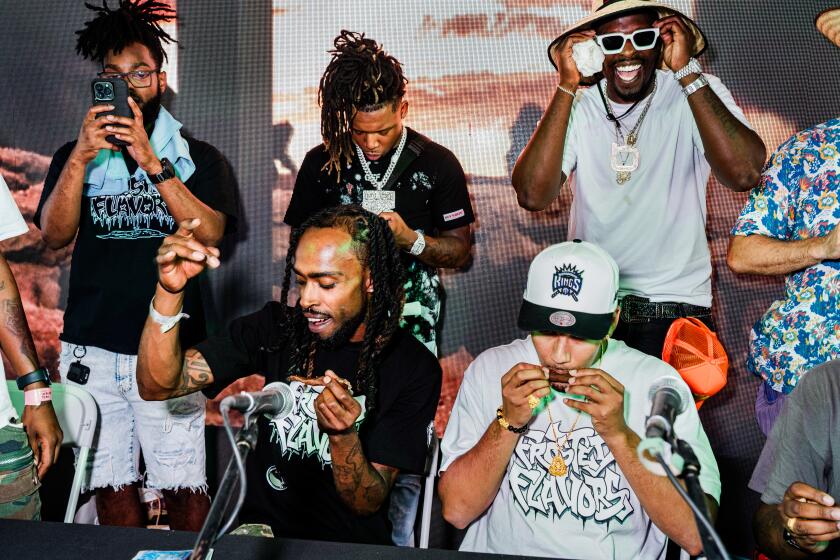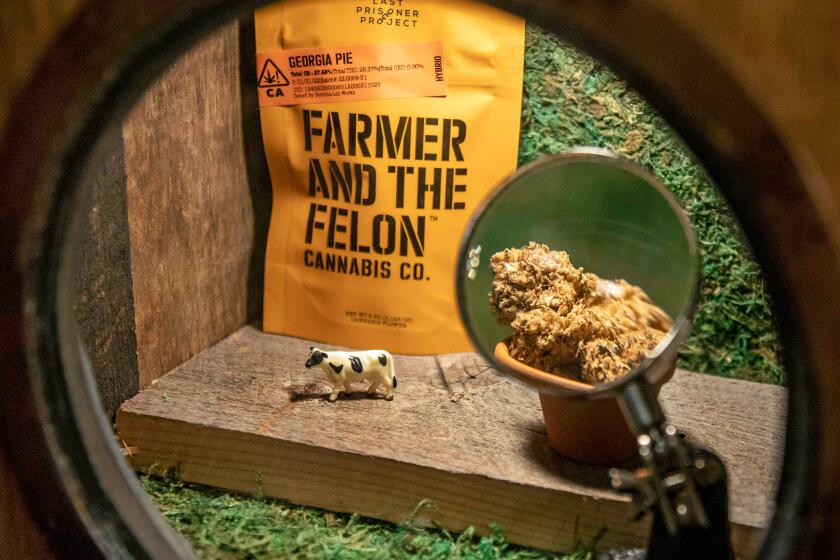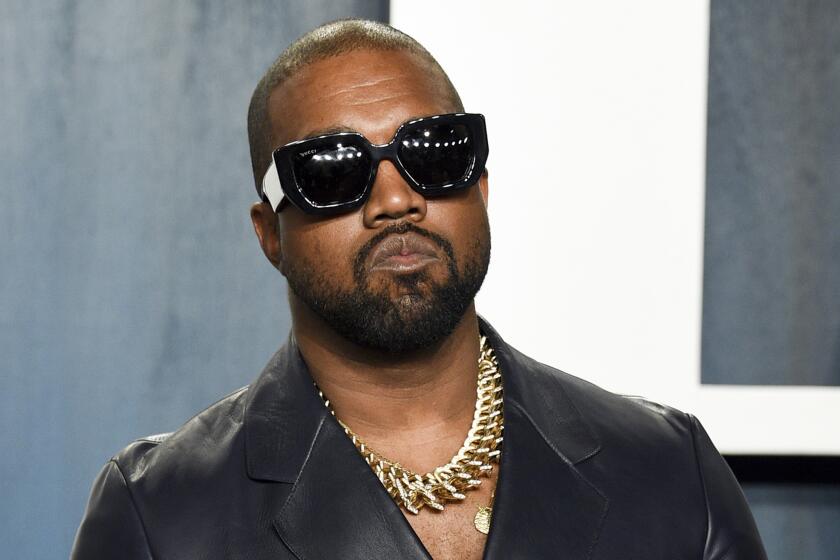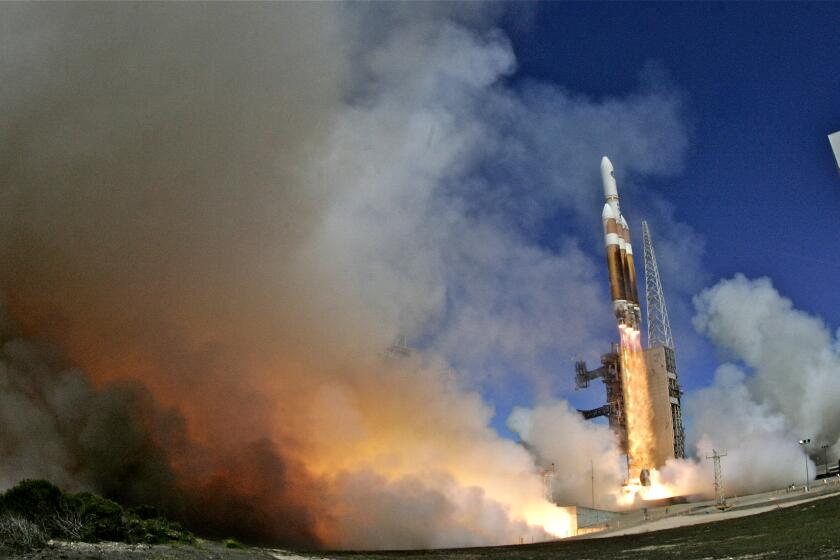Woody Harrelson wants snacks, soft drinks at his cannabis cafe. He needs Newsom’s signature

Woody Harrelson is taking a cannabis bill to the higher-ups.
The Emmy-winning actor and longtime marijuana activist is urging Gov. Gavin Newsom to sign legislation that would permit Amsterdam-style cannabis cafes in California. After all, he has a personal stake in the matter: He’s a co-owner of the Woods WeHo cannabis dispensary and lounge in West Hollywood.
“We just need a tiny little crumb and that is the ability to sell noncannabis items in the lounge,” Harrelson said in a recorded video that the bill’s author, Assemblymember Matt Haney (D-San Francisco), posted Monday on Instagram. “I don’t see how that hurts anybody. Let’s please make this happen.”
The three-time Oscar nominee, who last year visited Capitol Hill to urge lawmakers to legalize marijuana at the federal level, called the California bill “extremely important” for lounges and dispensaries across the state that are facing closure due to “all of the taxation, all of the regulation which is crippling our industry.”
The California State Fair’s first-ever cannabis consumption lounge opened on Sunday. Here’s what the first four hours and 20 minutes looked like.
“I’m actually an anarchist. I don’t even like government,” the actor said, “but here I am trying to do the right thing, and I hope that Newsom, etc. will do the right thing.
A representative for Harrelson did not respond immediately Wednesday to The Times’ request for additional comment.
Newsom last year vetoed a prior iteration of the bill, citing concerns about “long-standing smoke-free workplace protections.”
“At the governor’s urging,” Haney in January introduced a revised version of the bill which has since passed the Assembly and state Senate with ease. Newsom has yet to issue a verdict.
If signed, AB 1775 would authorize local jurisdictions to allow licensed cannabis retailers to prepare and sell non-cannabis food and nonalcoholic beverages. The bill would also allow the cafes to host live music and other performances.
Woody Harrelson’s Ganja Giggle Garden is like Walt Disney’s Enchanted Tiki Room for cannabis fans, complete with huge koi and an Instagram-famous parrot.
Haney expressed hope Friday at a news conference at the Woods dispensary that Newsom would support the legislation.
“The governor recently said that the future happens here first,” he said. “Well, this is the future. This is the future when it comes to adult-use cannabis. It’s the future when it comes to supporting our cannabis small businesses and their ability to thrive.”
Haney continued to say that voters passed Proposition 64 in 2016 because they wanted to be able to use legal cannabis in a social setting “and yet at the same time, [the state has] kept in this arbitrary, misguided, backwards prohibition” on dispensaries getting involved with anything other than weed. (Cannabis cafes in West Hollywood operate with workarounds that separate their food businesses from the dispensaries, including partnering with nearby restaurants to deliver food to their customers, The Times has previously reported.)
Gov. Gavin Newsom vetoed similar legislation last year, saying he was concerned about keeping workplaces smoke-free.
“AB 1775 is very simple,” Haney said. “It lifts that prohibition,” enabling California’s legitimate cannabis businesses to “thrive and compete with the illegal market that unfortunately is continuing to grow much faster than the legal market.”
On top of that, Haney said, legalizing cannabis cafes will create the kind of “good jobs, high-paying jobs” that are “bringing back our commercial districts when still many are struggling after the pandemic.”
Newsom has until Sept. 30 to sign or veto the bill, which would go into effect Jan. 1.
Staff writer Laura J. Nelson contributed to this report.
More to Read
Only good movies
Get the Indie Focus newsletter, Mark Olsen's weekly guide to the world of cinema.
You may occasionally receive promotional content from the Los Angeles Times.














